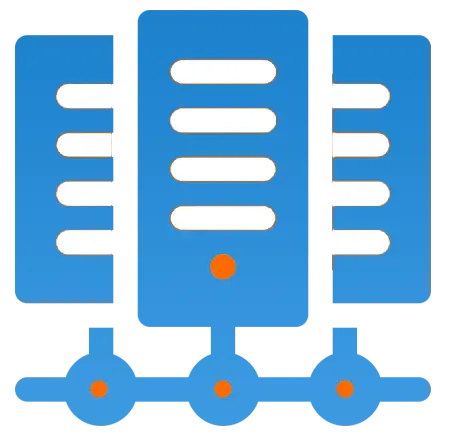Get 69% Off on Cloud Hosting : Claim Your Offer Now!
- Products
-
Compute
Compute
- Predefined TemplatesChoose from a library of predefined templates to deploy virtual machines!
- Custom TemplatesUse Cyfuture Cloud custom templates to create new VMs in a cloud computing environment
- Spot Machines/ Machines on Flex ModelAffordable compute instances suitable for batch jobs and fault-tolerant workloads.
- Shielded ComputingProtect enterprise workloads from threats like remote attacks, privilege escalation, and malicious insiders with Shielded Computing
- GPU CloudGet access to graphics processing units (GPUs) through a Cyfuture cloud infrastructure
- vAppsHost applications and services, or create a test or development environment with Cyfuture Cloud vApps, powered by VMware
- Serverless ComputingNo need to worry about provisioning or managing servers, switch to Serverless Computing with Cyfuture Cloud
- HPCHigh-Performance Computing
- BaremetalBare metal refers to a type of cloud computing service that provides access to dedicated physical servers, rather than virtualized servers.
-
Storage
Storage
- Standard StorageGet access to low-latency access to data and a high level of reliability with Cyfuture Cloud standard storage service
- Nearline StorageStore data at a lower cost without compromising on the level of availability with Nearline
- Coldline StorageStore infrequently used data at low cost with Cyfuture Cloud coldline storage
- Archival StorageStore data in a long-term, durable manner with Cyfuture Cloud archival storage service
-
Database
Database
- MS SQLStore and manage a wide range of applications with Cyfuture Cloud MS SQL
- MariaDBStore and manage data with the cloud with enhanced speed and reliability
- MongoDBNow, store and manage large amounts of data in the cloud with Cyfuture Cloud MongoDB
- Redis CacheStore and retrieve large amounts of data quickly with Cyfuture Cloud Redis Cache
-
Automation
Automation
-
Containers
Containers
- KubernetesNow deploy and manage your applications more efficiently and effectively with the Cyfuture Cloud Kubernetes service
- MicroservicesDesign a cloud application that is multilingual, easily scalable, easy to maintain and deploy, highly available, and minimizes failures using Cyfuture Cloud microservices
-
Operations
Operations
- Real-time Monitoring & Logging ServicesMonitor & track the performance of your applications with real-time monitoring & logging services offered by Cyfuture Cloud
- Infra-maintenance & OptimizationEnsure that your organization is functioning properly with Cyfuture Cloud
- Application Performance ServiceOptimize the performance of your applications over cloud with us
- Database Performance ServiceOptimize the performance of databases over the cloud with us
- Security Managed ServiceProtect your systems and data from security threats with us!
- Back-up As a ServiceStore and manage backups of data in the cloud with Cyfuture Cloud Backup as a Service
- Data Back-up & RestoreStore and manage backups of your data in the cloud with us
- Remote Back-upStore and manage backups in the cloud with remote backup service with Cyfuture Cloud
- Disaster RecoveryStore copies of your data and applications in the cloud and use them to recover in the event of a disaster with the disaster recovery service offered by us
-
Networking
Networking
- Load BalancerEnsure that applications deployed across cloud environments are available, secure, and responsive with an easy, modern approach to load balancing
- Virtual Data CenterNo need to build and maintain a physical data center. It’s time for the virtual data center
- Private LinkPrivate Link is a service offered by Cyfuture Cloud that enables businesses to securely connect their on-premises network to Cyfuture Cloud's network over a private network connection
- Private CircuitGain a high level of security and privacy with private circuits
- VPN GatewaySecurely connect your on-premises network to our network over the internet with VPN Gateway
- CDNGet high availability and performance by distributing the service spatially relative to end users with CDN
-
Media
-
Analytics
Analytics
-
Security
Security
-
Network Firewall
- DNATTranslate destination IP address when connecting from public IP address to a private IP address with DNAT
- SNATWith SNAT, allow traffic from a private network to go to the internet
- WAFProtect your applications from any malicious activity with Cyfuture Cloud WAF service
- DDoSSave your organization from DoSS attacks with Cyfuture Cloud
- IPS/ IDSMonitor and prevent your cloud-based network & infrastructure with IPS/ IDS service by Cyfuture Cloud
- Anti-Virus & Anti-MalwareProtect your cloud-based network & infrastructure with antivirus and antimalware services by Cyfuture Cloud
- Threat EmulationTest the effectiveness of cloud security system with Cyfuture Cloud threat emulation service
- SIEM & SOARMonitor and respond to security threats with SIEM & SOAR services offered by Cyfuture Cloud
- Multi-Factor AuthenticationNow provide an additional layer of security to prevent unauthorized users from accessing your cloud account, even when the password has been stolen!
- SSLSecure data transmission over web browsers with SSL service offered by Cyfuture Cloud
- Threat Detection/ Zero DayThreat detection and zero-day protection are security features that are offered by Cyfuture Cloud as a part of its security offerings
- Vulnerability AssesmentIdentify and analyze vulnerabilities and weaknesses with the Vulnerability Assessment service offered by Cyfuture Cloud
- Penetration TestingIdentify and analyze vulnerabilities and weaknesses with the Penetration Testing service offered by Cyfuture Cloud
- Cloud Key ManagementSecure storage, management, and use of cryptographic keys within a cloud environment with Cloud Key Management
- Cloud Security Posture Management serviceWith Cyfuture Cloud, you get continuous cloud security improvements and adaptations to reduce the chances of successful attacks
- Managed HSMProtect sensitive data and meet regulatory requirements for secure data storage and processing.
- Zero TrustEnsure complete security of network connections and devices over the cloud with Zero Trust Service
- IdentityManage and control access to their network resources and applications for your business with Identity service by Cyfuture Cloud
-
-
Compute
- Solutions
-
Solutions
Solutions
-
 Cloud
Hosting
Cloud
Hosting
-
 VPS
Hosting
VPS
Hosting
-
GPU Cloud
-
 Dedicated
Server
Dedicated
Server
-
 Server
Colocation
Server
Colocation
-
 Backup as a Service
Backup as a Service
-
 CDN
Network
CDN
Network
-
 Window
Cloud Hosting
Window
Cloud Hosting
-
 Linux
Cloud Hosting
Linux
Cloud Hosting
-
Managed Cloud Service
-
Storage as a Service
-
 VMware
Public Cloud
VMware
Public Cloud
-
 Multi-Cloud
Hosting
Multi-Cloud
Hosting
-
 Cloud
Server Hosting
Cloud
Server Hosting
-
 Bare
Metal Server
Bare
Metal Server
-
 Virtual
Machine
Virtual
Machine
-
 Magento
Hosting
Magento
Hosting
-
Remote Backup
-
 DevOps
DevOps
-
 Kubernetes
Kubernetes
-
 Cloud
Storage
Cloud
Storage
-
NVMe Hosting
-
 DR
as s Service
DR
as s Service
-
-
Solutions
- Marketplace
- Pricing
- Resources
- Resources
-
By Product
Use Cases
-
By Industry
- Company
-
Company
Company
-
Company
Docker vs Kubernetes: Which Container Orchestration Tool is Right for Your Business?
Table of Contents
Container technology is becoming increasingly widespread among businesses worldwide, as it provides a solution for the deployment and management of complex applications.
Moreover, Containers have emerged as the favored alternative to conventional virtual machines because they package all necessary dependencies into a single bundle, making them highly portable, efficient, secure, scalable, and easy to administer. However, to scale containers, a container orchestration tool is required to manage multiple containers effectively
In modern software development, containerization has emerged as a powerful technology that enables fast and efficient application building, deployment, and management. The growth of containerization has also led to the development of various container orchestration tools that make it easier to manage containerized applications at scale.
Docker & Kubernetes orchestration tools are currently the two most widely utilized orchestration tools. This blog post will examine their differences and help you determine which one is best suited to your business needs.
What do you mean by Docker?
Docker is a freely available containerization platform that streamlines the creation, deployment, and administration of applications via containers. Since its inception in 2013, Docker has rapidly become the go-to standard for containerization.
Docker containers provide an isolated environment for applications to run, making them more secure and portable. Docker comprises a suite of tools designed to facilitate the development, distribution, and administration of containers. These tools encompass Docker Engine, Docker Compose, and Docker Swarm.
At the heart of the Docker platform is Docker Engine, the essential building block of containerization. It is a lightweight runtime environment that allows containers to run on any host system. Docker Compose is a developer-oriented tool that empowers them to define and operate multi-container applications with ease.
On the other hand, Docker Swarm is a robust clustering and orchestration solution that permits the effortless deployment and management of numerous Docker containers over several hosts.
What do you mean by Kubernetes?
An open-source container orchestration platform that automates the deployment, scaling, and administration of applications contained within containers is well-known as Kubernetes. Originally developed and launched in 2014 by Google, it has now emerged as one of the most widely utilized container orchestration tools in the industry.
Kubernetes provides a powerful set of features that make it easier to manage large-scale containerized applications. These features include automatic load balancing, self-healing, and service discovery.
Kubernetes uses a master-slave architecture, with a cluster of nodes that run containers. The master node has the responsibility of managing the cluster, while the worker nodes handle the execution of containers.
Kubernetes provides several tools that make it easier to manage containers, including kubectl, the Kubernetes command-line interface, and Helm, a package manager for Kubernetes.
Docker vs. Kubernetes
While Docker and Kubernetes both provide containerization capabilities, they differ in several ways.Outlined below are several of the primary distinctions between Docker and Kubernetes.
|
Feature |
Docker |
Kubernetes |
|
Architecture |
Client-server architecture |
Master-slave architecture |
|
Scalability |
Can scale up to a few hundred nodes |
Can scale up to thousands of nodes |
|
Service discovery |
Relies on external tools like Consul or etc |
Provides built-in service discovery capabilities |
|
Load balancing |
Relies on external tools like HAProxy or Nginx |
Provides built-in load balancing capabilities |
|
Advanced features |
Limited features like container management |
Automatic scaling, rolling updates, self-healing |
|
Container management |
Simple and easy to use |
More powerful set of tools for managing at scale |
|
Resource utilization |
Less efficient as it does not optimize for resources |
More efficient as it optimizes for resources |
|
Configuration management |
Supports basic configuration management through Docker Compose |
Supports more advanced configuration management through Kubernetes ConfigMaps and Secrets |
|
High availability |
Limited high availability options |
Provides robust high availability features |
|
Monitoring |
Lacks built-in monitoring capabilities |
Provides built-in monitoring capabilities |
|
Community support |
Large and active community support |
Large and active community support |
Kubernetes vs other Orchestration Tools
Kubernetes stands out among other orchestration tools due to its robust feature set, a large and active open-source community, and extensive industry adoption. It excels in automating containerized application management, providing self-healing capabilities, scalability, and a declarative configuration model. While other tools like Docker Swarm and Apache Mesos offer orchestration capabilities, Kubernetes is the most widely adopted and has become the de facto standard for container orchestration in the cloud-native ecosystem.
Which one is right for your business?
The choice between Docker and Kubernetes depends on your business needs.Here are some essential aspects to take into account when deciding between these two container orchestration tools:
Size of deployment
If you are deploying a small-scale application with a few containers, Docker is a good choice. Docker is easy to set up and use, and provides a lightweight runtime environment for running containers.
Scalability
If you are deploying a large-scale application with thousands of containers, Kubernetes is the better choice. Kubernetes is designed for large-scale deployments and can handle high traffic loads. It delivers functionalities like automatic scaling, rolling updates, and self-healing that are unavailable in Docker.
Advanced features
For those seeking advanced features like automatic scaling, rolling updates, and self-healing, Kubernetes is the preferable option. Kubernetes provides a more powerful set of tools for managing containers at scale.
Service discovery and load balancing
If built-in capabilities for service discovery and load balancing are necessary, then Kubernetes is the superior option. Kubernetes provides these features out of the box, while Docker relies on external tools such as Consul or etcd for service discovery and tools such as HAProxy or Nginx for load balancing.
Familiarity with the tool
If your team is already familiar with Docker and has experience using it, then it may be the better choice. However, if your team is new to container orchestration or has experience with Kubernetes, then Kubernetes may be the better choice.
Conclusion
Docker and Kubernetes are both powerful container orchestration tools that have their own strengths and weaknesses. Docker is a good choice for small-scale deployments or for organizations that are new to container orchestration. Kubernetes is a more appropriate selection for extensive deployments or enterprises that necessitate sophisticated functionalities like automatic scaling, rolling updates, and self-healing.
Ultimately, the choice between Docker and Kubernetes depends on your business needs and the specific requirements of your application.
Recent Post

Stay Ahead of the Curve.
Join the Cloud Movement, today!
© Cyfuture, All rights reserved.
Send this to a friend

 Pricing
Calculator
Pricing
Calculator
 Power
Power
 Utilities
Utilities VMware
Private Cloud
VMware
Private Cloud VMware
on AWS
VMware
on AWS VMware
on Azure
VMware
on Azure Service
Level Agreement
Service
Level Agreement 


















